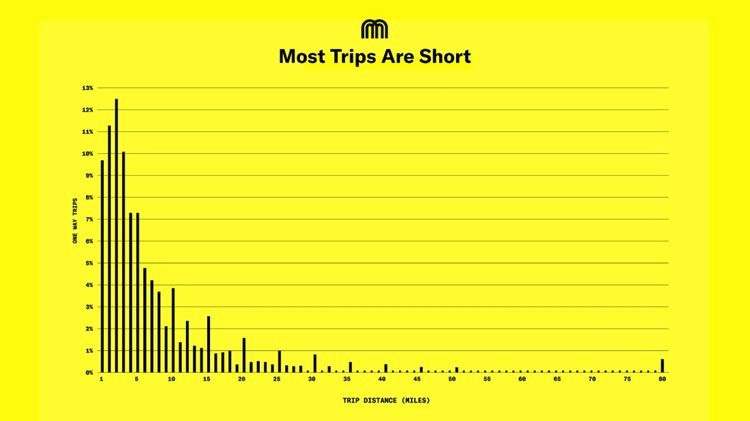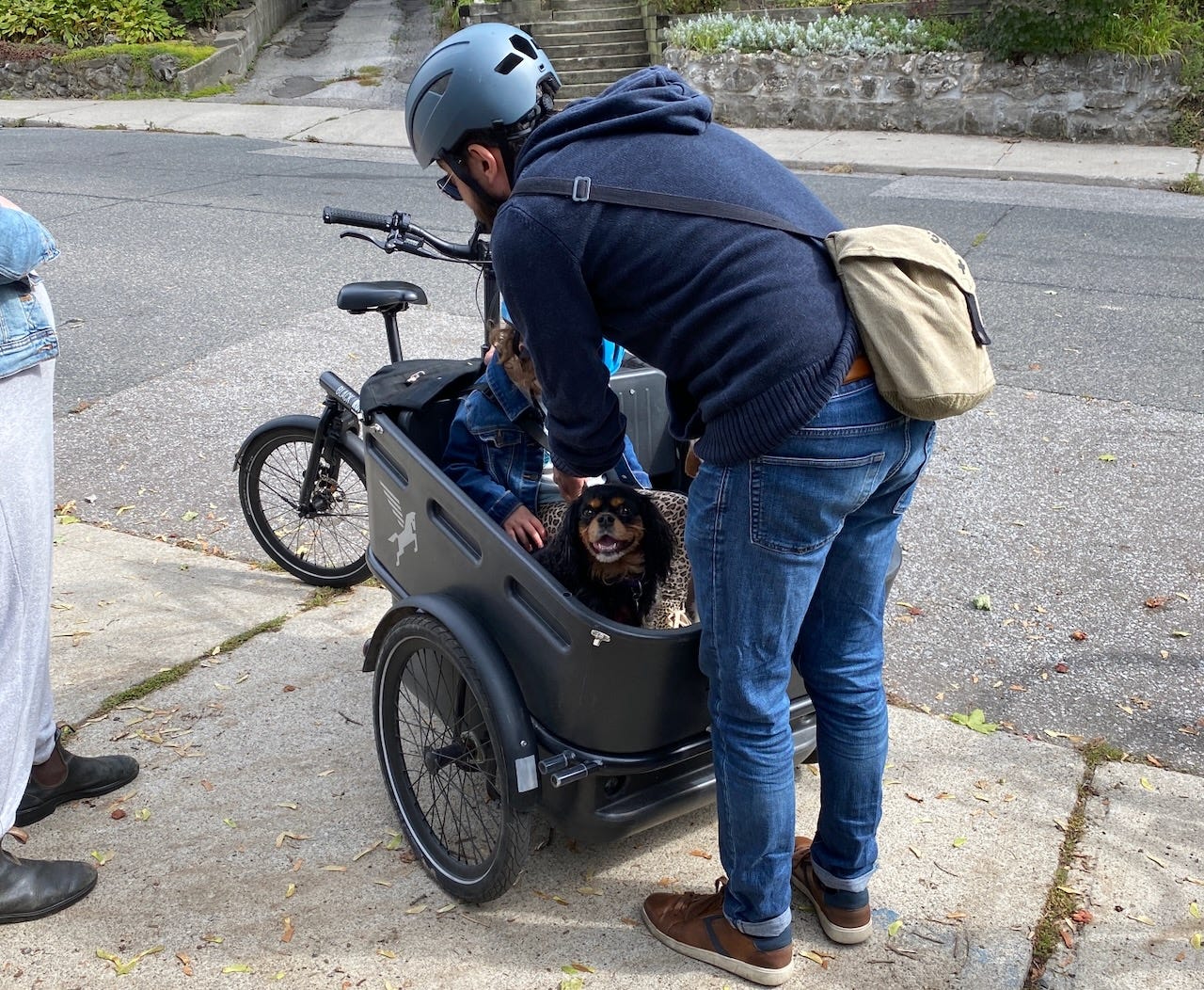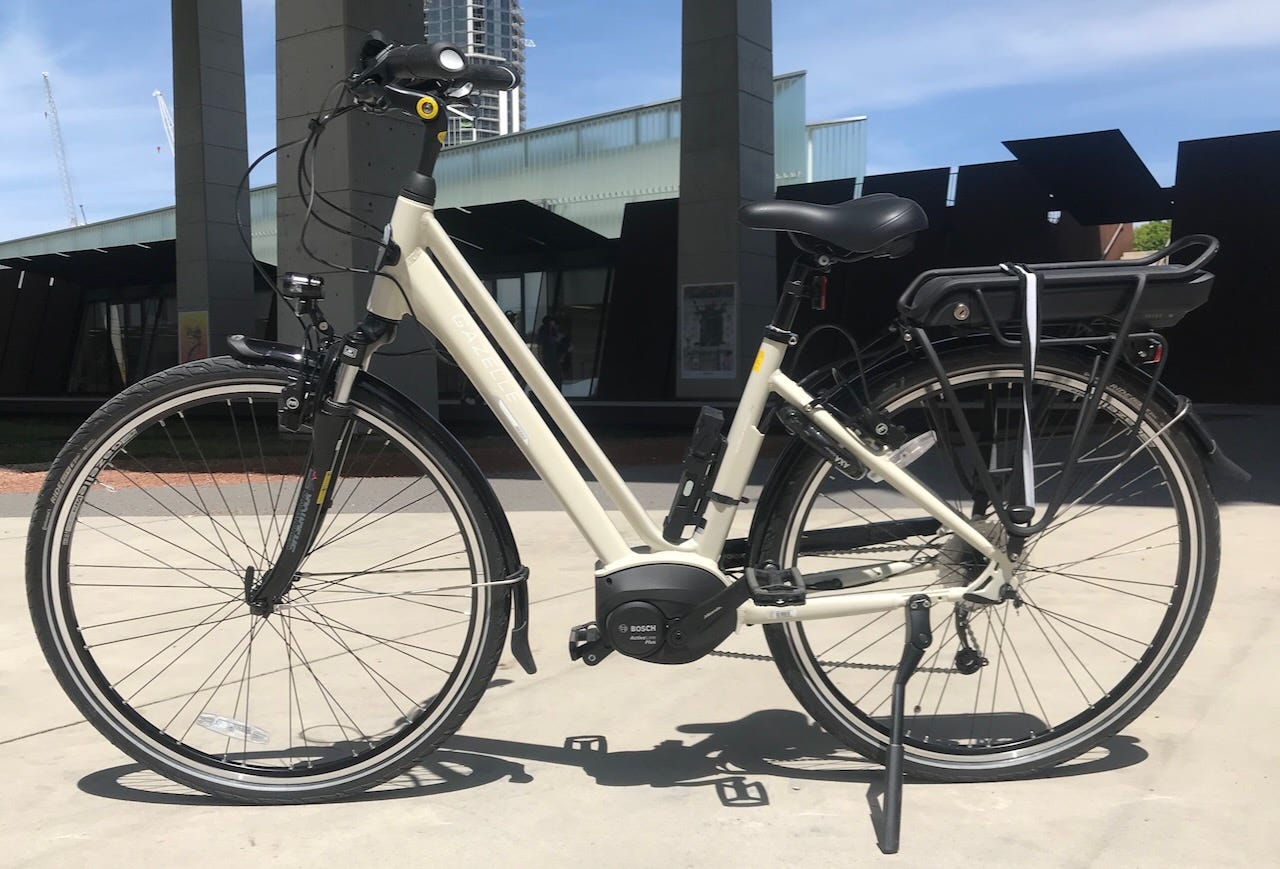E-Bikes are Eating Cars
There is a revolution happening under our noses, and it is time people paid attention.
In 2017, in a podcast titled Bicycles, e-Bikes and the slow-burn disruption of cities, a technology analyst named Horace Dediu said, “Bikes have a tremendous disruptive advantage over cars. Bikes will eat cars.” CNN wrote: “Dediu argues that electric, connected bikes will arrive en masse before autonomous, electric cars. Riders will barely have to pedal as they whiz down streets once congested with cars.” In 2018 I paraphrased Dediu and wrote “e-bikes will eat cars.”
In 2023, Dediu is co-founder of Micromobility Industries, which examines how electric vehicles are disrupting transportation all over the world. But not just electric cars; he tells Tom Vanderbilt about how he started looking at what is powered by batteries, and he found that the answer is not the electric car. Instead, there is what I have compared to a Cambrian explosion of different designs and devices. Dediu concludes: “There’s more people in the world caring about two wheels than there are four.”
Dediu almost missed this, saying, “I was fooled because I didn’t see this, and it’s right under my nose.” Everybody is still missing the micromobility revolution happening under all of our noses.
Dediu is not alone in promoting micromobility. Janette Sadik-Khan, former New York Mayor Bloomberg’s head of the Department of Transportation and now chair of the National Association of Transportation Officials says, “The future transportation revolution is already here—and she arrived on an e-bike. They’re a great alternative to driving. They don’t require parking. They’re less expensive. They’re really changing how people are getting around and I see it every day when I walk or bike in the city.” Sadik-Khan notes that in the US, more than half of all trips are less than three miles. “That’s 15 minutes on an e-bike without breaking a sweat.”
Simon Kuper of the Financial Times calls e-bikes “the cheap green, low-tech solution for the world’s megacities.”
"The electric bicycle is a game-changer, much more significant than the overhyped, expensive and insufficiently green e-car: global sales of e-bikes are projected to reach 40 million next year, compared to 9 million for electric vehicles. Globally, most trips are less than 10 kilometres, which e-bikes can cover within half an hour."
A debate over a bike lane on Toronto’s Main Street is happening now, with a woman who lives in the area complaining to The Star that she gets stuck in traffic jams “as she tries to drop and pick up her kids from school.” This gets to the heart of the issue; very few people who live in midtown Toronto have to drive their kids to school. This is a choice of convenience, not necessity, causing danger and pollution for every other kid. Her statement demonstrates why we need bike lanes more than ever: to provide safe alternatives to driving and perhaps discourage people from tossing their kids into the car.
In my own home, the e-bikes and the e-cargo bike have truly been game-changers. My son-in-law can toss the dogs and the daughter into the cargo bike and go just about anywhere, and they have been doing it all winter.
Being a cold, damp February day didn’t stop me from hopping on my Gazelle and riding downtown for lunch yesterday. Having a motor on the bike means it is no harder or more strenuous than driving a car, and it is a lot less stressful.
You often hear that “not everyone can ride an e-bike.” This is true, although not everyone can drive a car either. I am doing it in winter at 70 years old, and my favourite e-bike story is about when my 9-months pregnant daughter rode her e-bike to the hospital for an ultrasound in October. A few hours later, I got a phone call- “dad, can you come and pick up my bike? I am having a baby tonight.” Both mother and daughter are fine, even after biking to the hospital.
Horace Dediu was right; there is a micromobility revolution happening under our noses, and nobody is paying attention. It’s happening in New York City, where Clarence Eckerson Jr. made this video. In our household, the e-bike has eaten my car; I haven’t driven in the city in two years. My kids’ cargo bike has eaten SUV-loads of kids and shopping.
But the real revolution will happen in the suburbs, where the distances are longer, and the roads are wide enough to build protected bike lanes without everyone fighting over inches, and where people will start asking why they need a car for every person in the family. A study on e-bike carbon savings notes that "E-bikes are different to conventional bicycles. E-bikes have considerable range. We need to get out of the mind-set that only very short distance trips are possible by active modes." That’s when e-bikes will eat cars, and e-cargo bikes will eat SUVs, and it’s coming soon.





Pundits and prognosticators have given us predictions about AI, self-driving cars, and other developments, while ignoring the transformation happening with electric bikes. They are nifty, way cheaper than cars, and can easily get you to most of your destinations.
I love the idea of being able to commute with an e-bike. To drive down the embodied carbon involved in transport, I only wish I lived in a place where they tried to make transportation work for bikes. Out here in the sticks, everything is spread out and designed to require cars, or I guess the assumption is that cars will be available without question to zip us around.